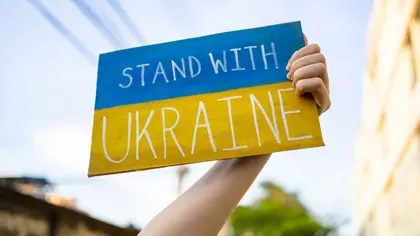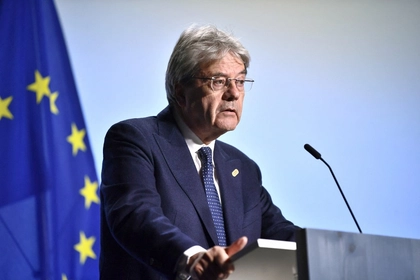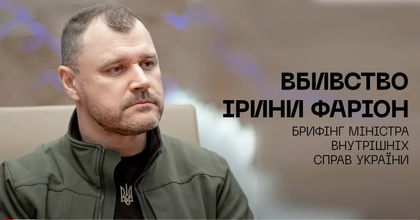The moment of truth has arrived. Western naivety about Russia, its history, culture, and motives, has been finally exposed and is being reckoned with.
Russia has lost its pretentious standing as an international colossus, and the fig leaf of “great culture” and of a self-exalted champion against fascism and for the rights of former colonies has been virtually blown away.
JOIN US ON TELEGRAM
Follow our coverage of the war on the @Kyivpost_official.
The emperor – not just would-be latter-day Tsar Putin, but the entire atavistic Russian autocratic and imperial ethos – has been exposed as naked, ugly, toxic and highly dangerous.
Brandishing nuclear weapons – like saber-rattling and mobilizing mass armies in the past – is not a sign of strength, let alone superiority. Rather, it reflects a bullying mentality seeking to cover up serious inadequacies and specious claims.
Moreover, Russia has been faking it in the spheres that really count: respect for progressive civilizational values and norms where equality and rights are respected, including national self-determination and self-identification, preference of democracy over autocracy, rule of law at home and in the international order, truth and reality over deception and self-delusion, and security over constant insecurity.
Russia's war against Ukraine continues on two fronts – against Ukraine itself, and against the West with which Ukraine identifies itself, receives support from, and which today’s Kremlin, as before in the tsarist and communist epochs, abhors as an ideological, or rather civilizational, challenge.

Kuleba Talks Peace in China – Bohdan Nahaylo
For far too long Russia in its various incarnations was either misunderstood, leading to naïve perceptions, or given far too much generous credit by fellow travelers, useful idiots, “pragmatists,” and self-centered cynics. Soviet ideologues seized on their gullibility and exploited their willingness to support tacitly or explicitly Russia’s narratives or appease it.
To justify his aggression against Ukraine, Putin has repeatedly declared that it has never really existed and was permitted to come into being by Lenin in the early 1920s. As Russia’s temporary new tsar, he claims to be its authoritative revisionist historian.
Any specialist worth their salt will know that Russia’s Catherine II conducted a lively correspondence with Europe’s preeminent freethinker in the 18th century – Voltaire. And as far back as 1731, he wrote in his first book: “Ukraine has always aspired to be free.”
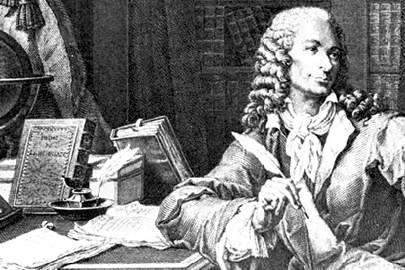
When Voltaire died shortly before the French Revolution, the Russian authorities hurriedly bought his entire library, complete with his correspondence, in order to censor the contacts between an enlightened European trailblazer and a Russian autocrat masquerading as a liberal.
The very essence of “eternal” Russia was captured: pretentiousness, deception, manipulation and cynicism. Treating Westerners as naïve fools, and then, when caught out, retreating into an ideological bunker from which vitriolic salvoes are launched, weapons waved, all under the guise of being under supposed attack.
Imperial Russia, together with its other allies, eventually defeated Napoleon and in 1815 occupied Paris. But what happened to those Russian officers who reached France and saw the difference between the backward autocratic Eurasian empire and the modern Europe of those days? They attempted a coup d’état in December 1825 to overthrow the Russian autocracy. Unfortunately, these liberal “Decembrists” were defeated and executed or imprisoned. Sadly, Russia has had few moments of genuine democracy.
To Ukraine’s credit, its representatives in the mid-19th century did not bend to the same degree before the imperial might of the Russian tsarist throne as did those icons of Russian culture – Pushkin, Dostoevsky, and others.
Taras Shevchenko, the poet, artist and visionary, regarded as the inspirational voice awakening modern Ukraine, spent 10 years in penal servitude between 1849 and 1859 because of his outspokenness in denouncing Russia autocracy and imperialism.
Even his more enigmatic contemporary, Nikolai Gogol, aka Mykola Hohol, did much in his own particular way to expose the rottenness and duplicity of the Russian tsarist system, using humor with such precise effect.
But Russian despotism took a firm hold. In the second half of the 19th century, various tsars banned the Ukrainian language. Even as the Ukrainian cultural and political resurgence got under way against all odds, Russian liberals still found it hard to accept that Ukrainians were not Russians and wanted to be in charge of their own destiny.
When the tsarist order was swept away in early 1917, the old mindset and habits remained. Russian “democrats” prevaricated and were reluctant to let Ukraine go its own way. Subsequently, in 1918-20, Russian White and Red forces battled it out in what they saw as a civil war, largely on Ukraine’s territory, both sides being opposed to Ukraine’s independence.
Meanwhile, Ukrainians fought to consolidate a national revolution and their independence from the Russian empire, a fact that many in the West preferred to overlook then, and in actual fact, were unaware of or not interested in until quite recently.
The Reds finally won, and even though Ukraine’s struggle for self-determination was crushed by force, the ruthless Bolshevik leader Lenin was forced to acknowledge political realities and accept the creation of a theoretically free union of sovereign “soviet” republics, which included Ukraine, as the USSR.
The rest we know: nominal concessions from the Bolshevik leadership in the 1920s; collectivization by terror, the genocidal Holodomor in 1932-33 (which was ignored by western democracies and the League of Nations), purges, the Gulag, the Second World War, with all the horror and losses it entailed; post-war Ukrainian armed resistance, more intense repression and mass deportations, and then the post-Stalin period with its imprisonment of patriotic dissidents and gradational Russification.
But Ukraine held out, and in the late 1980s its national democratic resurgence sealed the fate of the faltering Soviet system. It was Ukraine’s self-assertiveness that decisively energized the diverse centrifugal forces and led to the ultimate dissolution of the Soviet empire. Ironically, at the time, many western leaders such British Prime Minister Margaret Thatcher and US President George Bush would have preferred that the last Soviet leader Mikhail Gorbachev had managed to keep his “reformed” empire intact.
For a short while, under post-Soviet Russian president Boris Yeltsin, it appeared that a historical page had been turned, opening a new era both for East-West and Ukrainian-Russian relations.
But not for long. His successor, Putin, the political upstart with a murky past, appeared on the scene and began to accumulate power and wealth by playing on Russian neuroses, paranoia and self-delusion.
The flaunting of military power, first in Chechnya and Georgia, and then further afield, the exploitation of Russia’s energy resources for political and economic purposes, and creeping historical revisionism, pandering to the country’s misplaced sense of greatness, military invincibility, and impunity, were all exploited to allow kleptocracy, authoritarianism and chauvinism to grow.
Ukraine itself is not blameless and has plenty to answer for. Instead of keeping its guard up and bolstering its independence though resolute internal transformation and maximizing its defense capability, it allowed corruption to gain the upper hand, with oligarchs and pro-Russian forces exploiting the situation.
In late 2013 and early 2014 the Maidan protests and Revolution of Dignity signified that a significant part of Ukrainian society had had enough and wanted a decisive break with the old ways and Russia’s meddling.
Moscow responded by seizing Crimea and part of Ukraine’s Donbas. Ukraine fought back as best it could, with ambivalent mediatory political support from Germany and France in the Normandy Four framework, in which they allowed Russia to shrug off its role as an aggressor.
In 2019, the humiliating defeat in the Ukrainian presidential election of Petro Poroshenko demonstrated that the vast majority of Ukrainian voters were unhappy with the way he had run the country after the expectations raised by the Revolution of Dignity.
Russia’s cynical all-out assault on Ukraine in February 2022 was the ultimate game changer. It rallied Ukrainians, regardless of their regional, linguistic or ethnic background to the cause of an independent, democratic, European state and gave the new president, Volodymyr Zelensky, a political newcomer, the opportunity to excel as a wartime leader and communicator on behalf of his beleaguered nation.
The Russian offensive, moreover, exposed the lies at the heart of Putin’s rationale, that he was launching a special operation to save Russians and Russian speakers in Ukraine – which he sees as merely an extension of the “Russian world.” Not a single Ukrainian village, town, or city welcomed the Russian invaders as liberators.
On the contrary, Russia’s invasion and its genocidal strategy only accelerated the crystallization of a modern, full-fledged, inclusive, Ukrainian political nation.
If before, Moscow sought to present Ukrainian patriots as Western Ukrainian followers of Stepan Bandera, a Ukrainian nationalist leader whom the KGB had assassinated in Munich in 1959, it must now face up to the fact that through its barbaric behavior it has transformed eastern and southern, largely Russian-speaking, Ukrainians, into “Banderists”.
And on top of this, Russia has alienated its “friends” in the West and isolated itself to a degree which would have been unimaginable only a year or two ago.
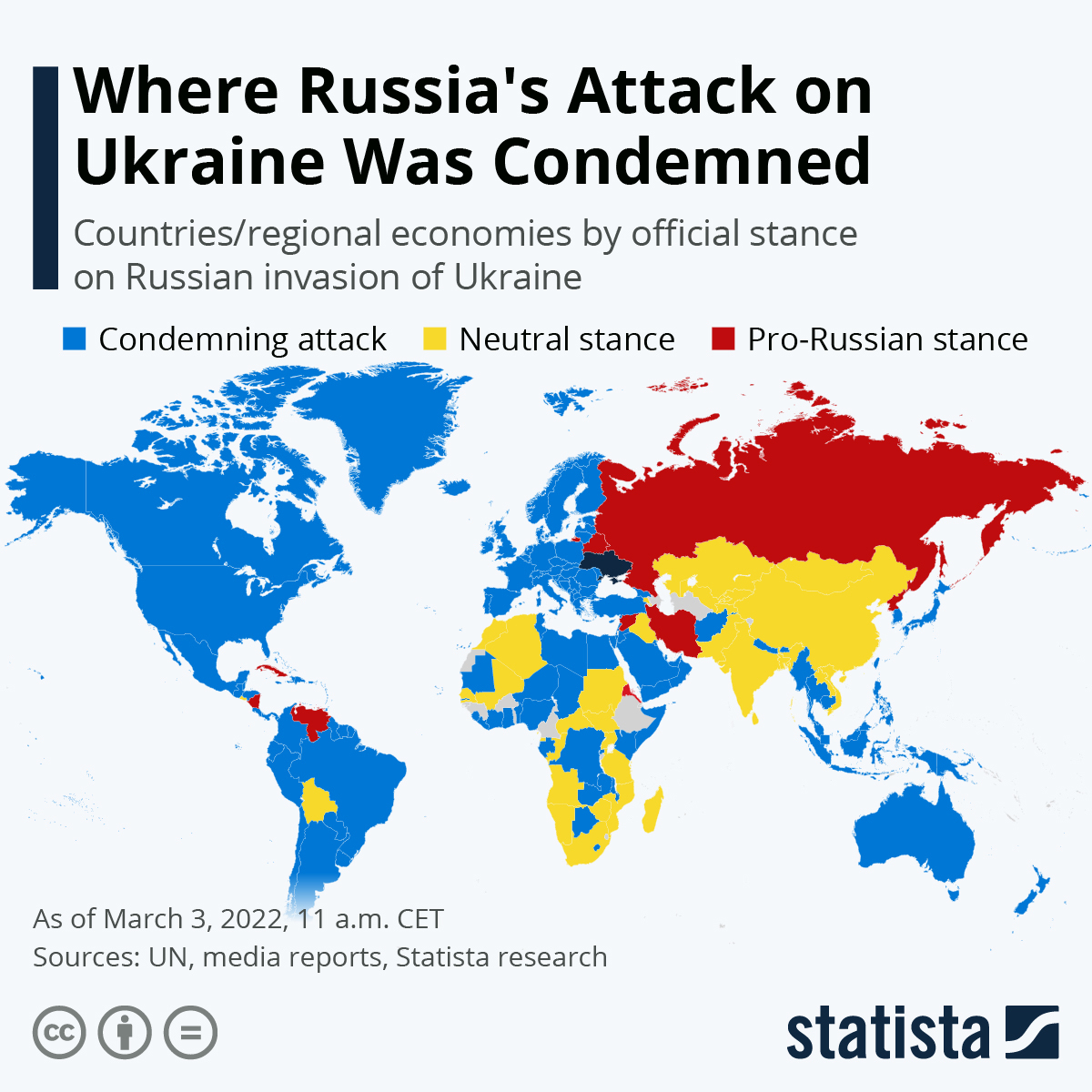
Almost 11 months after Moscow launched its blitzkrieg against Ukraine, the Ukrainians are on the offensive with an unprecedented level of understanding and support from their democratic allies in the Western world.
To paraphrase Gabriel Garcia Marquez, Ukraine’s 100 or so years of solitude have come to an end. And it is blessed with newfound solidarity, approximating love, in a time of metaphorical political cholera.
You can also highlight the text and press Ctrl + Enter


